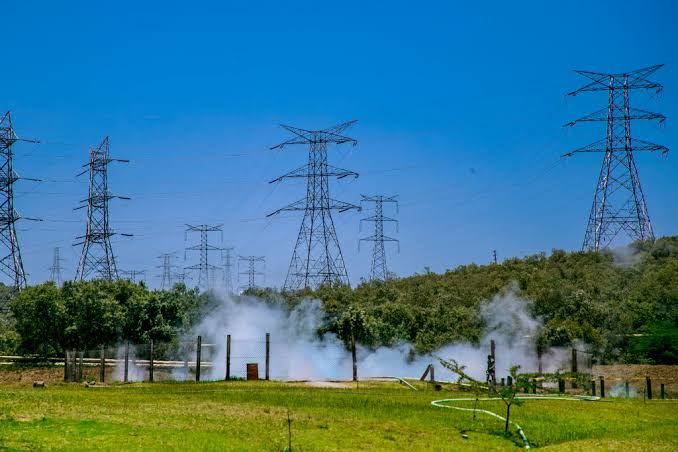KWALE,Kenya, Feb, 4 – A multi-agency security team has ordered hundreds of traders operating near way leave areas in Kwale county to vacate immediately and demolish their illegal structures days after Interior Cabinet Secretary Dr. Fred Matiang’i issued the notice.
The decision came amidst widespread destruction of key government installations such as electricity towers that resulted in a nationwide blackout.
Kwale county commissioner Gideon Oyagi said that it was government priority to protect all power stations, transformers and Kenya power transmission lines in the area.
Officers from Kenya power and KETRACO are also overseeing the exercise before the deadline elapses.
“The team is going around to ensure that there are no trees planted along the wayleave or buildings. Trees and structures found along the wayleave areas must be removed in the next 30 days by owners or else we will do it,” said Oyagi.
Scrap metal dealers in the county have also been warned against operating their business amidst moratorium issued by president Uhuru Kenyatta.
“All shops that sell or buy scrap metals stand closed and those found doing the same business will be dealt with ruthlessly,” he said.
Clearances that will be coordinated by county commissioners and grassroots-based National government administrators will be done humanely and in consultation with affected individuals according to the government.
The country was plunged into nationwide darkness when four pylons tumbled down in Embakasi after vandals reportedly tampered with critical parts of the installations. A scheme to vandalise more pylons in Naivasha that could have resulted in weeks of blackout was thwarted by security intelligence.
The incidences drew attention to the dangers posed by high-voltage pylons snaking through areas where designated wayleaves have been encroached by densely populated dwellings. Depending on load and expansion plans, wayleaves should be between 60 and 120 meters on either side of the transmission line.
The administrators were also tasked with the enforcement of the ban on the trade on scrap metal that was announced by President Kenyatta last week and that is intended to discourage vandalism of critical infrastructure by denying the material a ready market.
They will be required to develop a database of all scrap metal dealers in their counties and verify the registration and compliance status of the businesses.
Under the new arrangement, county commissioners working with area commanders of Critical Infrastructure Protection Unit (CIPU), energy sector managers will be required to map out energy installations in their jurisdictions and file bi-monthly reports on their security status.
Want to send us a story? Contact Shahidi News Tel: +254115512797 (Mobile & WhatsApp)


